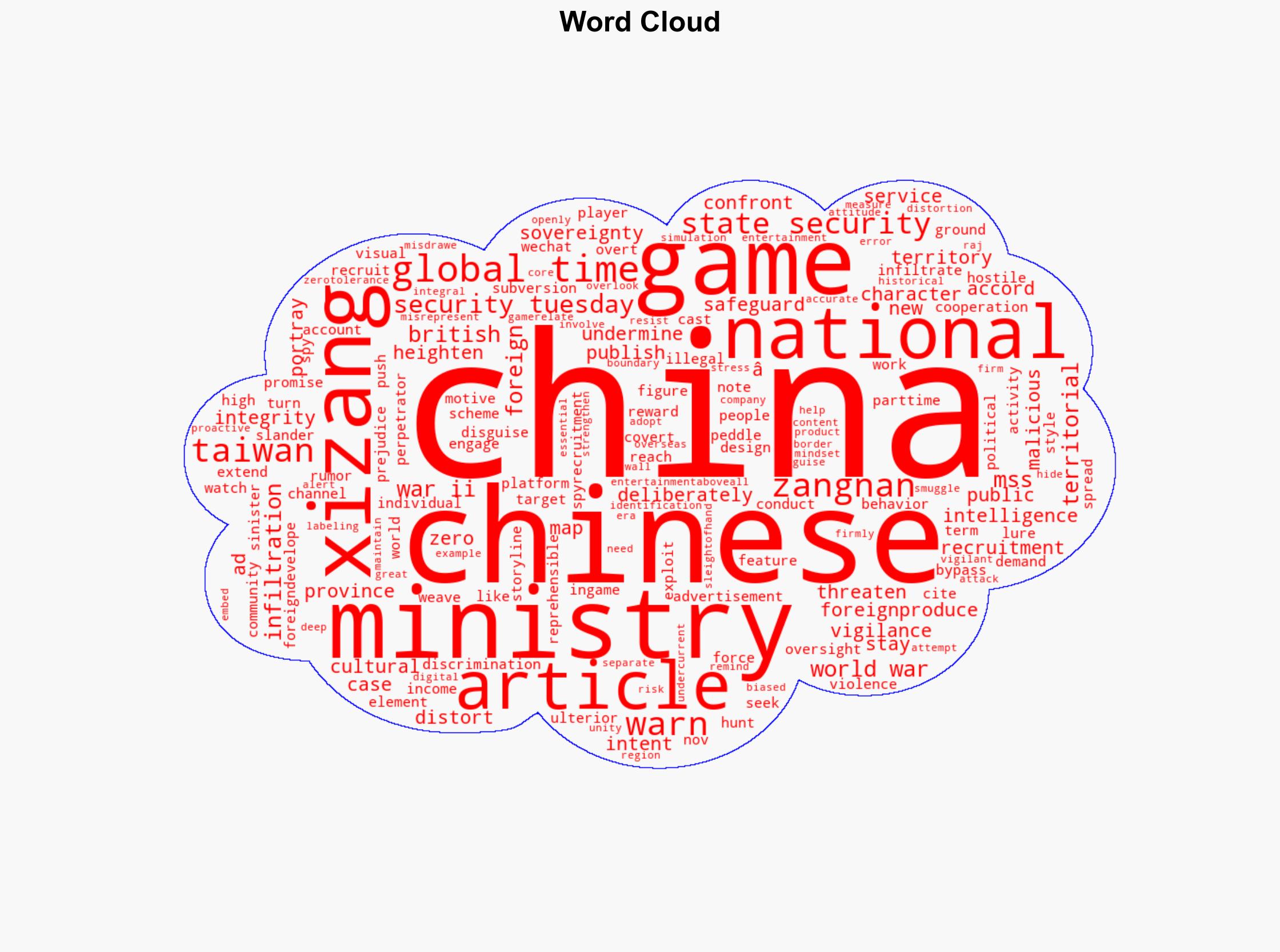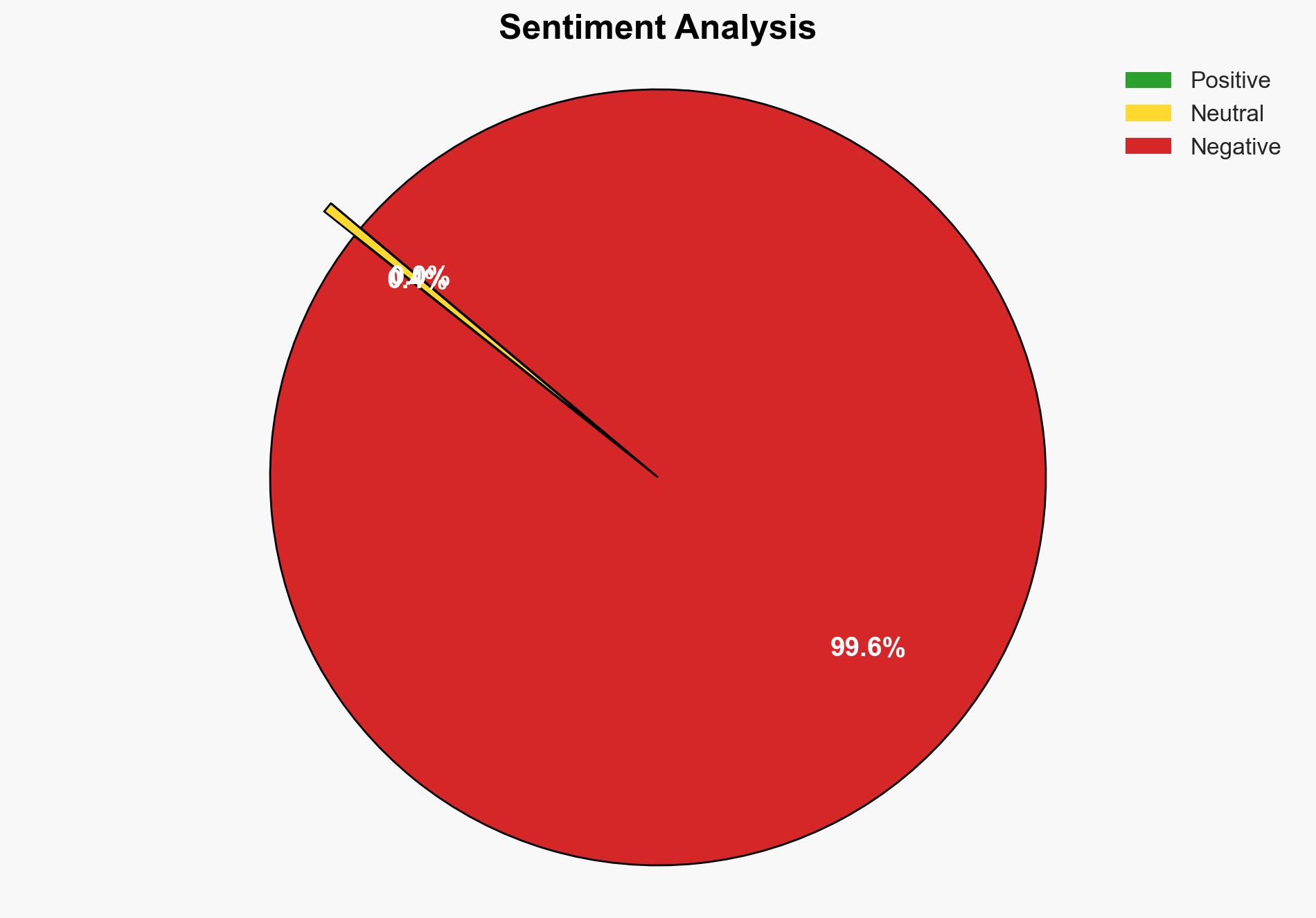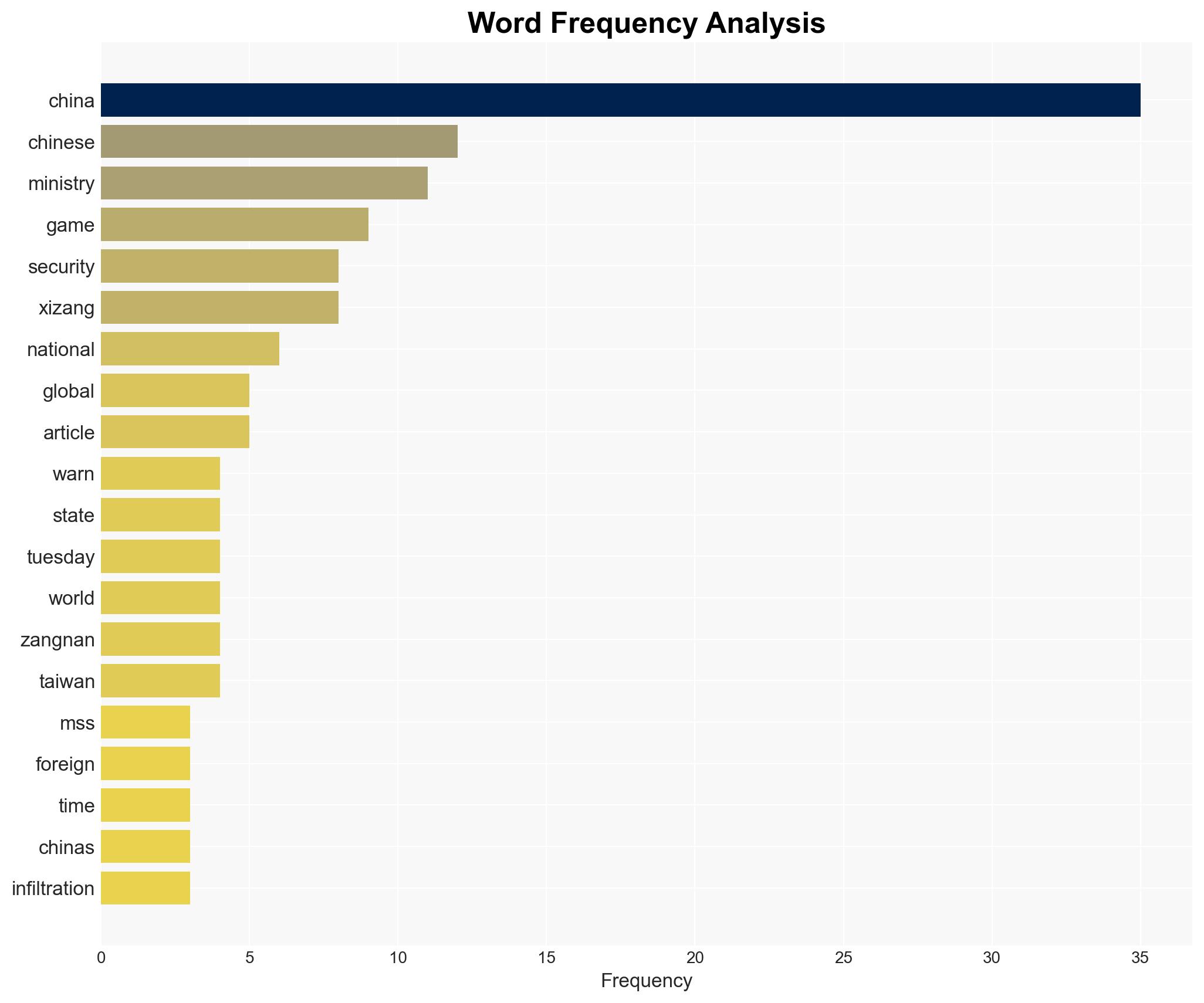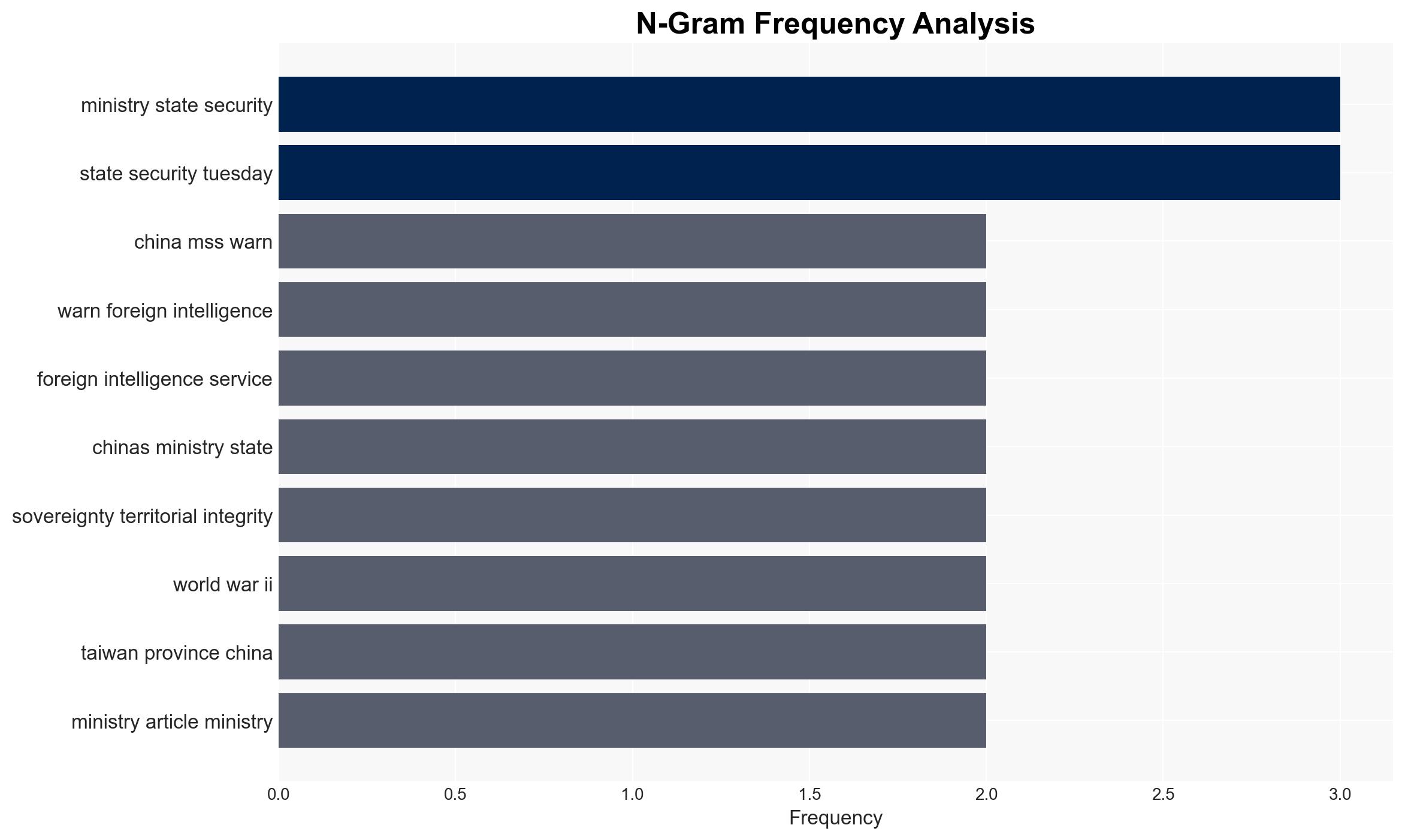China’s MSS warns of foreign intelligence services exploit games to infiltrate recruit spies threatening national security
Published on: 2025-11-25
AI-powered OSINT brief from verified open sources. Automated NLP signal extraction with human verification. See our Methodology and Why WorldWideWatchers.
Intelligence Report:
1. BLUF (Bottom Line Up Front)
The most supported hypothesis is that China’s Ministry of State Security (MSS) is using the narrative of foreign intelligence exploitation in gaming as a pretext to increase digital surveillance and control over foreign digital products within China. This assessment is made with moderate confidence due to the lack of independent verification of the claims and the historical pattern of China’s use of national security as a justification for increased control. Recommended actions include monitoring China’s regulatory changes in the digital sector and assessing impacts on foreign gaming companies operating in China.
2. Competing Hypotheses
Hypothesis 1: The MSS genuinely perceives a significant threat from foreign intelligence agencies using games to infiltrate and recruit spies, prompting a public warning to raise awareness and counteract these activities.
Hypothesis 2: The MSS is leveraging the narrative of foreign intelligence threats in gaming to justify increased surveillance and control over foreign digital content, aligning with broader strategic goals of digital sovereignty and censorship.
Hypothesis 2 is more likely due to historical patterns of China’s regulatory behavior, where national security concerns are often cited to justify increased control. Additionally, the lack of specific evidence or incidents provided in the warning suggests a strategic narrative rather than a response to a verified threat.
3. Key Assumptions and Red Flags
Assumptions: It is assumed that the MSS has credible intelligence to support its claims, although this is not independently verified. Another assumption is that the MSS’s actions are aligned with broader state objectives rather than isolated incidents.
Red Flags: The absence of specific examples or evidence in the public warning raises questions about the veracity of the threat. The timing and medium of the announcement (via Global Times and WeChat) suggest a potential strategic communication campaign.
Deception Indicators: The broad and non-specific nature of the warning could indicate an attempt to create a pretext for policy changes rather than addressing a specific threat.
4. Implications and Strategic Risks
The implications of this narrative could lead to increased regulatory scrutiny and restrictions on foreign gaming companies operating in China, impacting their market access and operations. Politically, this could escalate tensions between China and countries with significant gaming industries, such as the United States and Japan. Economically, it may deter foreign investment in China’s digital sector. Informationally, it could further isolate Chinese internet users from global content, reinforcing state narratives.
5. Recommendations and Outlook
- Monitor regulatory changes in China’s digital sector for impacts on foreign gaming companies.
- Engage in diplomatic dialogue to address potential trade and investment concerns arising from increased digital restrictions.
- Encourage foreign gaming companies to enhance compliance and transparency measures to mitigate risks of being targeted by Chinese regulations.
- Best-case scenario: China’s actions are limited to increased scrutiny without significant regulatory changes, minimizing impact on foreign companies.
- Worst-case scenario: Comprehensive regulatory measures are implemented, severely restricting foreign gaming companies and escalating international tensions.
- Most-likely scenario: Incremental regulatory changes increase compliance burdens on foreign companies without drastic market access restrictions.
6. Key Individuals and Entities
The report does not mention specific individuals by name. Key entities include China’s Ministry of State Security and foreign gaming companies operating within China.
7. Thematic Tags
National Security Threats, Digital Sovereignty, Foreign Influence, Regulatory Control
Structured Analytic Techniques Applied
- Cognitive Bias Stress Test: Structured challenge to expose and correct biases.
- Bayesian Scenario Modeling: Use probabilistic forecasting for conflict trajectories or escalation likelihood.
- Network Influence Mapping: Map relationships between state and non-state actors for impact estimation.
Explore more:
National Security Threats Briefs ·
Daily Summary ·
Support us





